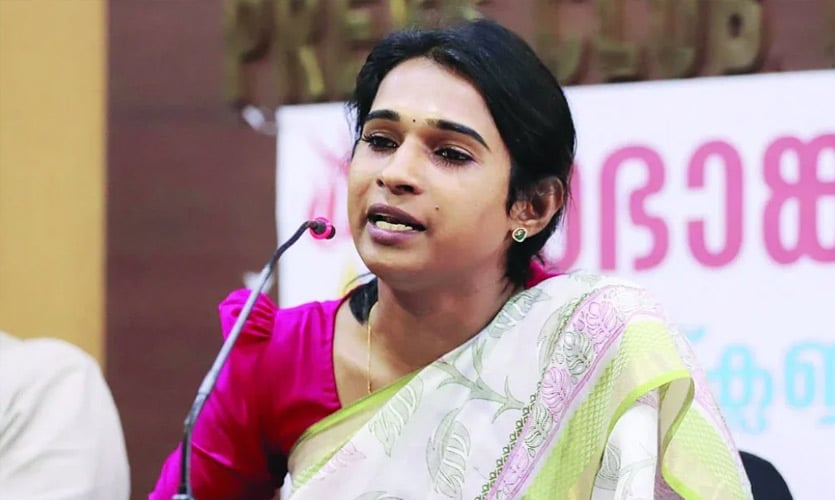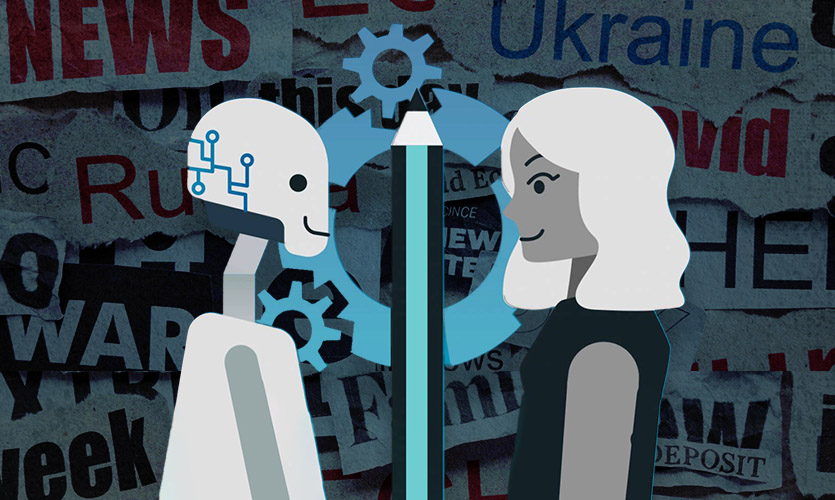Anannyah Kumari Alex, Kerala’s first transwoman radio jockey and political nominee, was found dead at an apartment near Edapally in Kochi on July 20. In a country like India, where transgenders are kept at the outskirts of society with limited access to any form of societal participation, she fought hard to make space for herself. A fierce activist for the rights of the transgender community, she lost her life battling the system that is visibly prejudiced and biased against those like her.
Suspected to have died by suicide, Anannyah was under major distress post her SRS surgery last year. It was the complications from the surgery that allegedly pushed her to take her own life. In an interview with The Cue, she said, “I’m a victim of gross medical negligence. My private part looks like a piece of meat, it has no resemblance to a vagina. I want to conduct re-surgery, I want justice.”
Following major backlash by the transgender community, the Health Minister of Kerala Veena George said in a statement, “A transgender organisation had also given a complaint regarding this. An expert committee will be formed to study issues related to sex reassignment surgery.” Even with the reassurance of investigation by the government, the trans community in India is deeply skeptical of any real action or justice for Annannyah, and rightly so given the history of injustices, violence and ostracization faced by them.
Transgenders in India
A transgender person is someone who does not identify with the sex they were assigned at birth, or their gender identity doesn’t align with their sexual identity. As per Indian law, transwomen, transmen, intersex people, genderqueer people and persons ascribing to socio-cultural identities such as kinner, hijra, aravani and jogta all come under the umbrella term ‘transgender’.
The legal recognition for transgenders in India came in 2014 when a Supreme Court judgement granted them the status of a third gender. The judgement, popularly called the NALSA judgement, asserted the rights of transgender persons’ to self-identity and ordered state and central government to grant legal status to their gender identity. This landmark judgement helped transgender persons to legalise their gender identity by acquiring identity cards in their preferred name and gender.
Even though this was a monumental victory for the trans community, it didn’t guarantee equal rights or respect. It pushed a series of bills being introduced in the parliament to address the lack of rights for transgender people. In November 2019, the Modi government, despite opposition from trans rights activists, enacted the Transgender Persons (Protection of Rights) Act. This Act, in a gross violation of NALSA judgement and constitutional rights, mandates for legal gender recognition and requires an individual to apply for a “transgender certificate” from the District Magistrate where they live. Moreover, a revised certificate is needed if the individual undergoes sex-reassignment surgery (SRS) to change their gender. They are left at the mercy of these magistrates, who will decide whether they are ‘transgender enough’ to be given the certificate. This is not only against the “self-identification” principle of the ruling but also against international standards or best practices – including those of multiple United Nations agencies.
Read more: How are trans persons to acquire COVID-19 relief without a ration card
While this is the external part of the struggle transgender people go through, there is an equally hard battle being fought within. Gender dysphoria, which is defined by the American Psychiatric Association as, “psychological distress that results from an incongruence between one’s sex assigned at birth and one’s gender identity,” is central to the struggles faced by the transgender community. While external changes in gender expression – mannerism and clothing – can help an individual to a certain extent, these changes often result in being looked at as the ‘other’ by society, adding to the mental agony of the person.
The only way to come out of this disassociation of how one feels inside to how they look from the outside and merge the sexual identity with the gender identity is through sex-reassignment surgery (SRS). SRS remains a distant dream for most who need it in India, the crude reality is painful castration at the hands of a doctor (if you are fortunate).
In her autobiography I am Vidya, by Kizhakku Pathipagam, Vidya, a transgender person from Chennai, describes her ordeal of going through castration at a clinic in Kadapa, Andhra Pradesh, for just Rs. 6,000. In a clinic resembling a slaughterhouse, a far-from-specialist doctor performed the surgery in less than 20 minutes. In the book, she recounts the horror, the harrowing pain and the final relief of discarding an identity she didn’t choose for herself. She goes on to call the dissociation from maleness ‘nirvana.’
With more awareness through the internet and other resources, the crude methods of castration, which pose a serious threat to the well-being of an individual, are being rejected as means of changing one’s sexual identity. The only thing standing between a safe SRS and a trans person seeking it – is the exorbitant cost of the procedure.
What is SRS and why is it expensive?
Sex-Reassignment Surgery (SRS) encompasses a combination of hormonal, psychological, psychiatric, clinical and surgical procedures to change the sex of an individual. A proper SRS goes way beyond physical surgery. There is pre and post-procedure counselling, hormonal therapy and a situation-based test of the ability to pursue life with the altered identity. The surgical removal and reconstruction of genitalia is usually the last step of the procedure.
“While the cost of undergoing sex reassignment surgeries (SRS) at private hospitals or clinics can range between Rs 2 to Rs 5 lakh for a male to female (MTF) transition, for a female to male (FTM) is anywhere between Rs 4 to Rs 8 lakh,” writes Somrita Ghosh in Battle for right body: The reality of sex reassignment surgeries in India, published in The Indian Express. “While the costly surgery is the final step in the transition process, the medication and therapy are added expenses. A year of therapy with a psychologist is compulsory before undergoing physical transition. This includes two to four sessions a month which can cost Rs 1,000 to Rs 1,500 per session, bringing the total cost to Rs 48,000 to Rs 72,000,” she added.
These costs make it nearly impossible for a trans person to get this surgery done. “The money for the surgeries are painstakingly made by many through sex work, pooling from here and there, and even begging,” said Anannyah, in the interview to The Cue. Unfortunately, for her, the cost of the surgery turned out to be her own life.










